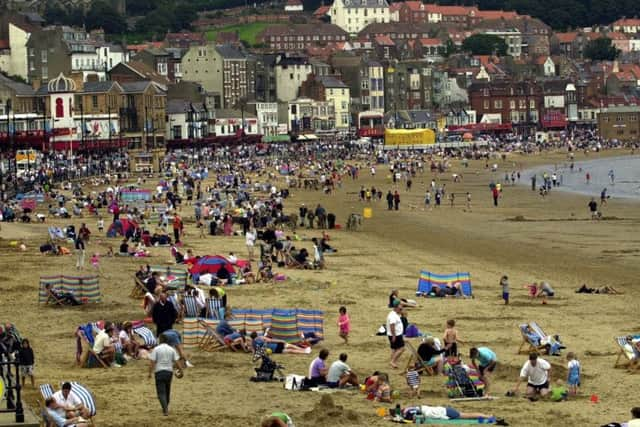Now TripAdvisor must tackle review blackmail as Yorkshire tourism industry pays the price for fake reviews - GP Taylor


It is quite understandable, we have beautiful beaches and majestic moors. We are also blessed to have lots of people working in the background to bring events to the area.
Advertisement
Hide AdAdvertisement
Hide AdIf you do an internet search of what’s on in Yorkshire, you are faced with hundreds of exciting things to choose from. Yorkshire really is on the up.


All these tourists do need somewhere to stay and eat and those providing hospitality have come across a new expression – ‘Review Blackmail’.
Quite simply, this is when someone asks for benefits for a good internet review. It is a new form of blackmail that is starting to blight the holiday industry. Keyboard warriors realise they have the power to coerce owners with the prospect of a bad review if they don’t give them what they want.


Advertisement
Hide AdAdvertisement
Hide AdSpeaking to a friend who has a holiday let, I was astounded by what people put in reviews. In just a few weeks, a customer wrote that the toilet of the property smelt, but failed to say that they had blocked it with stuff they had put down it. A different set of people ripped off the stair rails and then complained they were dangerous. Another visitor broke a bed and then complained that it was wobbly.
Behind all this was the desire to get money off their next holidays. Now, as a precaution against such fraud, the owner takes photographs of everything to prove it was in good order before the guests arrive.
Sadly, it doesn’t stop there. It is not uncommon for a guest to book a couple of nights with a letting agent and then directly ask the owner for a third night free in return for a good review. I have to ask, what kind of a society has the internet turned us into? What causes ordinary people to resort to low-level blackmail and think it is acceptable?
Advertisement
Hide AdAdvertisement
Hide AdYorkshire restaurants also have to put up with a growing number of people who will try anything for a free meal or else threaten a bad review. It’s frightening to know that some customers will plant previously collected insects, glass or hairs into food. If there is a genuine issue, then I would be the first to applaud the use of the internet to expose a bad operator or sloppy service, but it would seem that more and more people are prepared to distort the facts for their own financial gain.
One false review can have horrendous effects on future business. As Martin Couchman, of the British Hospitality Association, said: “People threatening restaurants and hotels with bad TripAdvisor reviews to extort free things is a problem which has been growing.”
A restaurant owner in South Yorkshire claims that about 30 of the 1,000 meals he serves each week will be to malicious customers who threaten bad reviews unless they get a freebie.
Hotels, guest houses and restaurants do not have a choice of whether they are on the review sites. Their premises can be featured by anyone, disgruntled or not. A brand-new sandwich shop received a one star review about bad service even before it had ever opened for business.
Advertisement
Hide AdAdvertisement
Hide AdTo counter this, some businesses are inventing their own fake reviews to outnumber the ones written by upset customers and competitors. Statistics now say that up to 40 per cent of reviews online are fake.
This is causing businesses to lose money. A bad review – fake or not – can impact a small business and in some cases, bring it down altogether. Those writing negative reviews can hide away behind an anonymous identity and say whatever they wish without fear of being caught. Reviewers should not be able to hide behind a false name.
As a consumer, I would really like to know what a hotel or café is really like but, as it stands, it is impossible to know what is the truth.
Internet review sites seem to be permanently inhabited by a vicious mob hell bent on venting 500 words of spiteful revenge – being told that the restaurant wallpaper wasn’t the right colour or a restaurant in Spain treats English like foreigners does little for me.
Advertisement
Hide AdAdvertisement
Hide AdWebsites must now make stringent checks on the people posting such reviews. They should not stop short of making these people provide proof of the meal or stay they are complaining about.
We are a county that prospers on tourism. It is only fair that those involved in the industry should be able to go about their business without fear of being conned by internet blackmailers looking for a free lunch or a cheap room.#
GP Taylor is an author and broadcaster. He lives in Whitby.